July 28, 2025 | 13:50 GMT +7
July 28, 2025 | 13:50 GMT +7
Hotline: 0913.378.918
July 28, 2025 | 13:50 GMT +7
Hotline: 0913.378.918
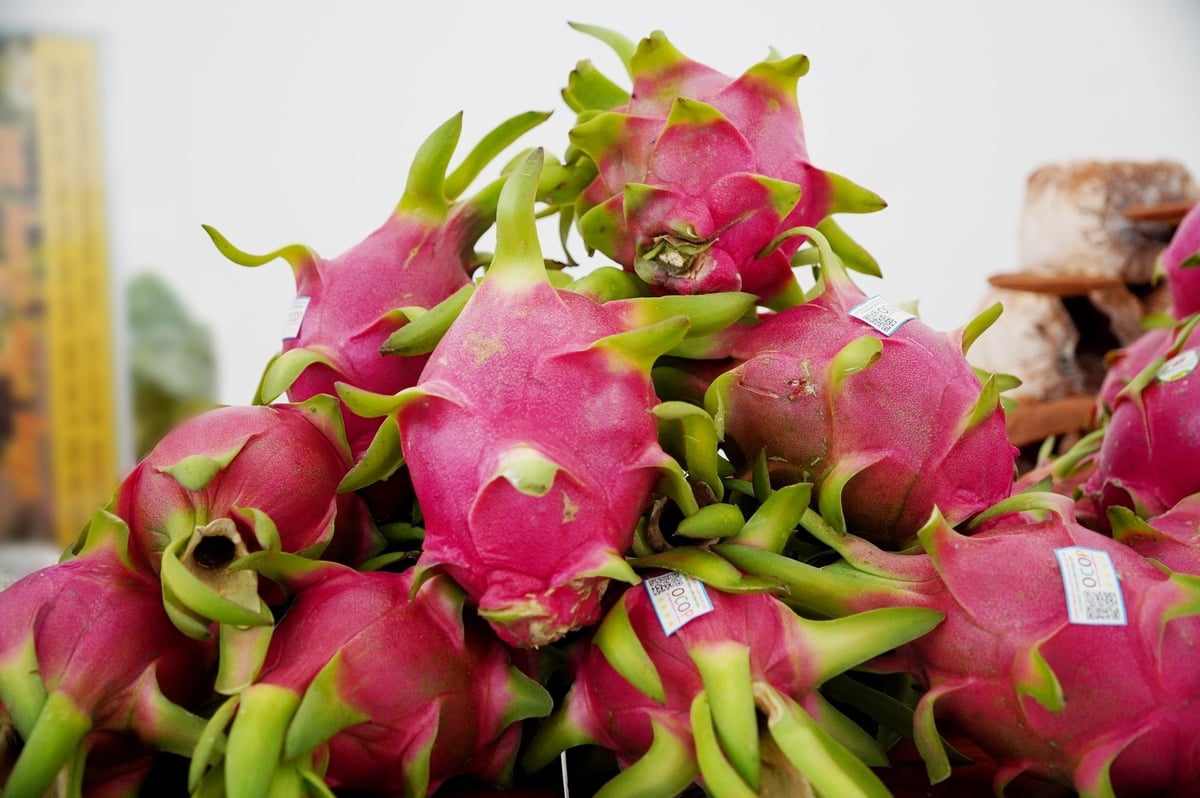
According to a report from the Department of Digital Transformation, Ministry of Agriculture and Environment, in the first six months of 2025, the country's dragon fruit output reached 622.4 thousand tons (an increase of 4.7% compared to the same period last year). Photo: Nguyen Thuy.
Mr. Nguyen Hoang Phuc, Deputy Director of the Department of Agriculture and Environment of Lam Dong province, said that after the merger of Lam Dong and Binh Thuan provinces, the new Lam Dong province now has a dragon fruit growing area of 26,000 hectares, with an output of 575 thousand tons, the highest in the country (accounting for 46% of the country's total output). The pepper area is 35,321 hectares, with an output of 79 thousand tons (accounting for 27.1% of the country's total output); the cashew area is 52,442 hectares, with an output of 41 thousand tons (accounting for 11.78% of the country's total output).
According to feedback from many businesses, agricultural exports to the European market (EU) have faced major obstacles since the beginning of July. Many shipments of dragon fruit, chili, pepper, etc., have been stuck due to a lack of documentation meeting EU standards.
In particular, the prolonged congestion has caused hundreds of tons of dragon fruit in the old Binh Thuan province (now Lam Dong province) to spoil and rot in cold storage because they cannot be exported. The reason is that, from July 1, 2025, according to the regulations of Circular 12 of the Ministry of Agriculture and Environment, the authority to issue food safety certificates for exported plant-based products was transferred to provincial-level agencies.
However, since July 1, the entire country has been rearranging administrative boundaries after the mergers, leading to confusion and delays in the certificate issuance process, which has caused difficulties for exporting businesses. This has prevented goods from being cleared in a timely manner, affecting contract deadlines and causing financial damage.
Exporting businesses located in HCMC and the Binh Thuan Dragon Fruit Association have requested that authorities resolve the industry's difficulties quickly. If this situation continues, businesses will hesitate to purchase goods, and farmers will worry that their produce will not be sold.
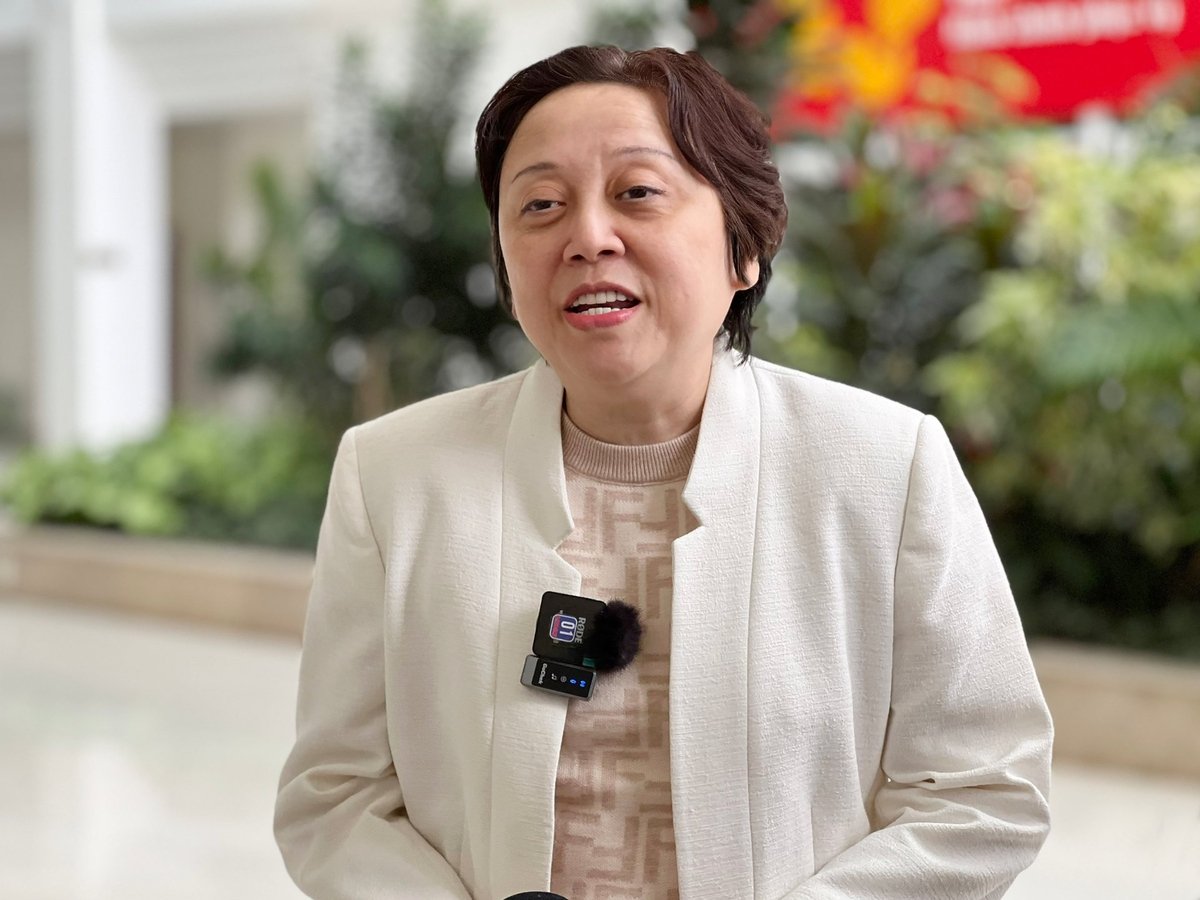
Ms. Pham Khanh Phong Lan, Director of the HCMC Food Safety Department. Photo: Nguyen Thuy.
Meanwhile, importing markets like the EU, which consume high-quality dragon fruit at good prices, have warned that they will switch to other suppliers if Vietnam does not meet delivery deadlines. It's not just dragon fruit; the pepper industry is also sounding the alarm.
In an exchange with a reporter from the Vietnam Agriculture and Nature Newspaper, Ms. Pham Khanh Phong Lan, Director of the HCMC Food Safety Department, said that the Ministry of Agriculture and Environment had issued a document decentralizing the authority to issue food safety certificates to provincial and city People's Committees. However, since this is an administrative procedure, local authorities need time to develop and issue the process, especially in the context of administrative boundary mergers.
Another major issue is the change in the forms in Circular 12 of the Ministry of Agriculture and Environment (replacing the previous Circular 44 of the Ministry of Agriculture and Rural Development), which makes the new forms no longer compatible with European requirements.
"We are urgently advising and submitting a proposal to the HCMC People's Committee to issue a decentralized process. But it's clear that from the time an instruction is given to the time it is implemented, there must be a delay. Meanwhile, businesses desperately need the certificates to export their goods", said Ms. Pham Khanh Phong Lan.
Given this situation, HCMC has chosen a flexible solution, handling cases as "exceptions". Instead of going through regular administrative procedures, businesses submit a request, explaining the situation and submitting their documents directly to be resolved as an emergency.
"Within four hours of receiving them, we processed five cases and forwarded them to the HCMC People's Committee for Vice Chairwoman Tran Thi Dieu Thuy to sign. This is an effort to resolve the issue during the period when the official administrative process has not yet been completed”, the Director of the HCMC Food Safety Department added.
However, Ms. Pham Khanh Phong Lan also expressed concern that without synchronized coordination from ministries and sectors, especially without sufficient preparation time for decentralization, businesses will suffer the most.
Amidst difficult export conditions due to the global economic slowdown, being stuck with domestic procedures makes businesses even more precarious.
"Don't let businesses suffer because of rigid regulations," said Ms. Pham Khanh Phong Lan, adding that there needs to be unified and timely support from ministries and sectors so that HCMC and other localities can urgently complete the certificate issuance process and allow businesses to clear their goods smoothly.
Translated by Linh Linh
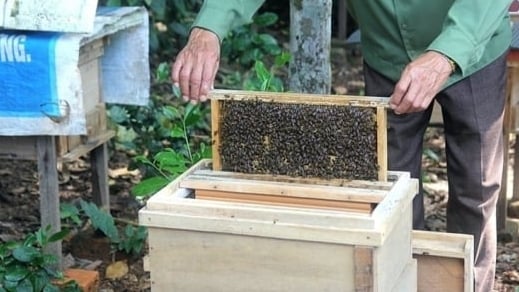
(VAN) In order to protect consumer health and enhance its value, commercial honey must adhere to rigorous hygiene, safety, and traceability standards.
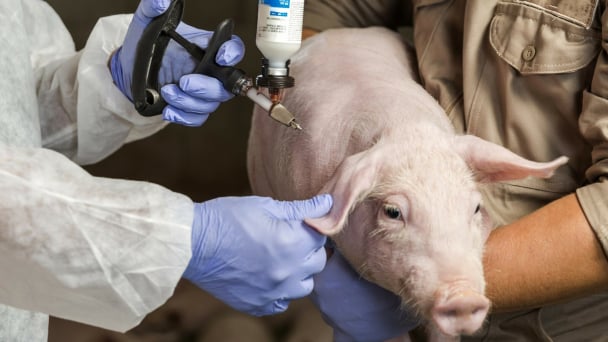
(VAN) Deputy Minister Phung Duc Tien raised concerns over the low vaccination rate for African Swine Fever despite millions of doses being produced, leading to significant losses for livestock farmers.
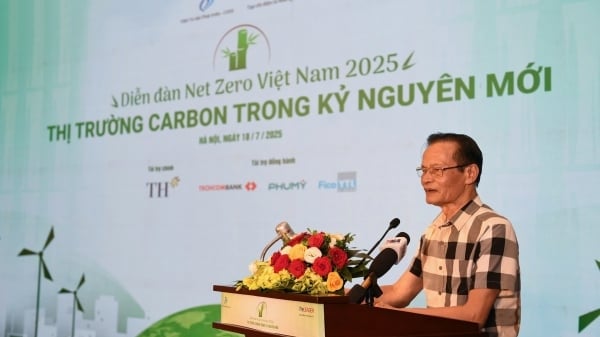
(VAN) In partnership with TheLEADER Magazine, the Institute of Development Consulting (CODE) hosted the Net Zero Vietnam Forum 2025, with the theme ‘Carbon Market in the New Era.’

(VAN) Without a clear and transparent financial framework, the operation of the carbon credit exchange will rely entirely on the state budget.
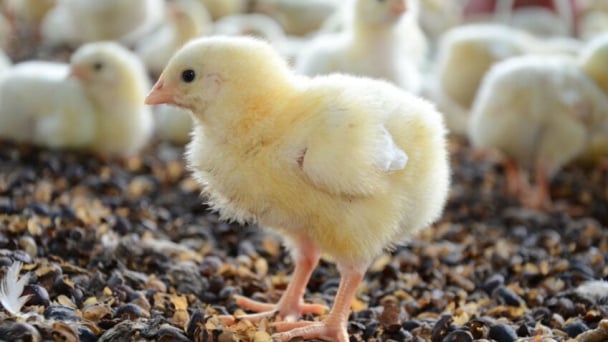
(VAN) Infectious bronchitis (IB) and infectious bursal disease (IBD) are highly contagious poultry diseases reported worldwide, with new variants and strains emerging each year.
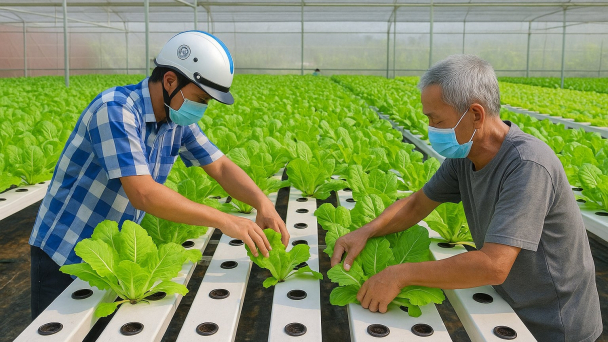
(VAN) Green agriculture is becoming an essential part of the new Ho Chi Minh City's sustainable development strategy, as it contributes to environmental preservation, livelihood security, and food safety.